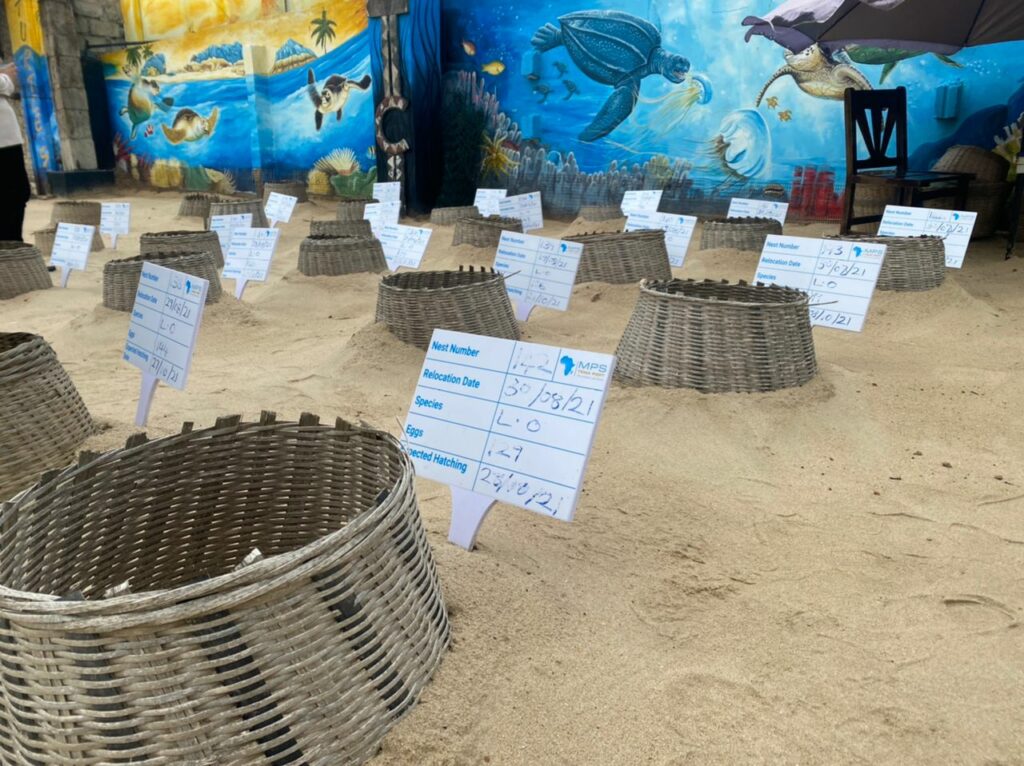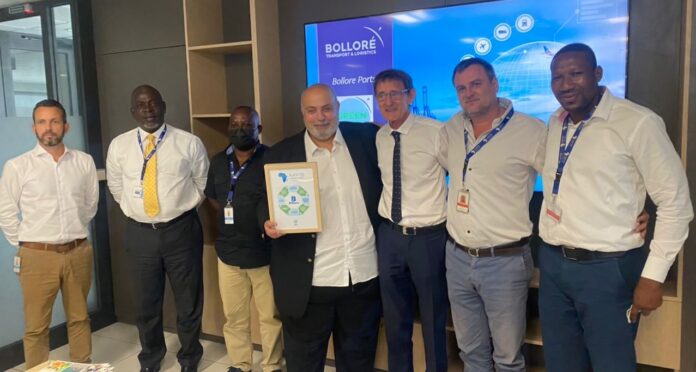|
Getting your Trinity Audio player ready...
|
Bolloré Ports has certified the Terminal 3 facility of Meridian Port Services (MPS) in Ghana as the first “Green Terminal” having gone through stringent auditing process of its energy consumptions, equipment, operating processes and facility among others.
This means that MPS Terminal 3 has put in measures to protect and preserve the environment, according to the global certification agency, Bureau Veritas.
Presenting the certificate to MPS in Ghana’s harbor city, Tema, on Wednesday (15 September), Christian Devaux, the Director of Quality Health Safety and Environment (QHSE) for Bolloré Ports, said MPS scored 86.58% after the assessment to earn for itself the enviable two stars.
“The Green Terminal concept is an enforcement for our Corporate Social Responsibility (CSR) strategy,” Devaux said at the media presentation. “It’s aimed at reducing greenhouse gas emissions and carbon footprint among others.”
Devaux continued: “Following our checks and comprehensive assessments, we are delighted to award this certificate to MPS signifying its achievements in the area of environmental sustainability.”
The label puts MPS ahead of all port terminals operated by the Bolloré Group in Africa, Asia and America in terms of sustainability, he noted.

He further explained: “The ranking is governed by the audited compliance levels of more than 250 key performance indicators (KPIs) and administered by four rating levels, with an entry at the “no star” level for a score above 50% and “one star” for a score above 65%, then “two stars” for a score above 80% and finally “three stars” for a score above 90%.”
The “Green Terminal” label is based on pillars such as optimised management thanks to an environmental management system based on the ISO 1400 standard, waste recovery, water and air treatment and control, energy transition, employee training in good practices related to environmental issues, etc.
Over the past three years, MPS has reduced greenhouse emissions by 36% making it one of the most energy efficient entities. In terms of the volumes handled, its carbon intensity is around 5kg CO2 eq/TEU for the 2020 financial year compared to 9kg CO2 eq/TEU for the 2018 financial year.
On his part, the CEO of MPS, Mohamed Samara, told AFP: “It’s a great achievement. We are proud of ourselves because Ghana has led in terms of productivity and investment and we’ve gone ahead of everybody in this West coast. We want to be always leaders in our industry, so we maintain our strategic position as a country.”
“We can’t achieve it without such an infrastructure. If you don’t have the connectivity how can you market your goods; if it’s too expensive how can you compete in such an international arena, so such infrastructure is really important in the Ghanaian economy. And when you come and do it in an environmentally friendly way, it brings a lot of a difference and adds value back to nature and to wildlife,” he added.
On plans that MPS is taking to achieve three stars in the future, Samara added that “we’re looking at electrification of our diesel engines at the moment. It requires further investment but the priority at the moment is to invest into more cranes and if we can achieve those we’ll secure the future growth.”
MPS seeks to position the terminal 3 and largely Tema Port as the hub for transshipment. Also, as part of its plans to preserve biodiversity, MPS in 2018 launched a programme for the conservation of sea turtles that consists in safely transfer of endangered turtle eggs from their natural environment to a closed hatchery which replicates their environment.





